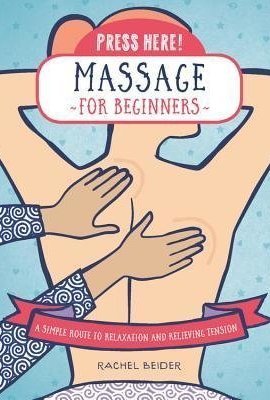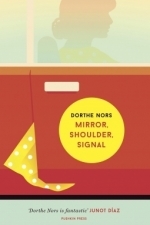Search
Search results
Andy K (10823 KP) created a video about The Patriot (2000) in Movies
Nov 22, 2017 (Updated Nov 22, 2017)
Erika (17789 KP) created a video about track Red Carpet Massacre by Duran Duran in Red Carpet Massacre by Duran Duran in Music
Jun 18, 2019
Movie Critics (823 KP) created a video about The Texas Chain Saw Massacre (1974) in Movies
Sep 14, 2017
Entertainment Editor (1988 KP) created a video about The Hong Kong Massacre in Video Games
Nov 2, 2017
Christine A. (965 KP) rated Press Here! Massage for Beginners: A Simple Route to Relaxation and Releasing Tension in Books
Mar 13, 2019 (Updated Mar 13, 2019)
Colorful illustrations (1 more)
Shows proper technique
Informative book on how to give a massage to others and to yourself
I was provided with a complimentary copy of this book so I could give an honest review.
Press Here! Massage for Beginners: A Simple Route to Relaxation and Releasing Tension by Rachel Beider is an informative book on how to give a massage to others and to yourself. It provides clear instructions on how to massage different parts of the body. It also includes sections for specific issues that may need special attention. Also shown are the proper techniques and strokes to use. It is full of colorful and detailed illustrations that show the basics of a massage.
I found the book informative and well written but two sections stand out to me. The first is on how to give yourself a massage. Beider shows how to use either your hand or a tennis ball to self massage. The other is a section on how to treat headaches and sinus congestion. As a sufferer of chronic sinus problems this was the most useful.
One thing I had never considered was you need to take care and look after your own body before you massage someone. Stretches are shown on how to prepare your hands so you do not damage them.
The book is easily labeled to find the exact section on which you want to focus.
Review published on Philomathinphila.com, Smashbomb, Goodreads, Facebook, Twitter, Amazon, and Barnes and Noble on 3/13/19.
Press Here! Massage for Beginners: A Simple Route to Relaxation and Releasing Tension by Rachel Beider is an informative book on how to give a massage to others and to yourself. It provides clear instructions on how to massage different parts of the body. It also includes sections for specific issues that may need special attention. Also shown are the proper techniques and strokes to use. It is full of colorful and detailed illustrations that show the basics of a massage.
I found the book informative and well written but two sections stand out to me. The first is on how to give yourself a massage. Beider shows how to use either your hand or a tennis ball to self massage. The other is a section on how to treat headaches and sinus congestion. As a sufferer of chronic sinus problems this was the most useful.
One thing I had never considered was you need to take care and look after your own body before you massage someone. Stretches are shown on how to prepare your hands so you do not damage them.
The book is easily labeled to find the exact section on which you want to focus.
Review published on Philomathinphila.com, Smashbomb, Goodreads, Facebook, Twitter, Amazon, and Barnes and Noble on 3/13/19.
Sarah Betts (103 KP) rated The Ancient Evil (Chain Letter, #2) in Books
Dec 31, 2019
08/28/2009
I have learned that when one is possessed, embalming fluid makes a delightful massage oil! Thanks, Chain Letter 2!
I have learned that when one is possessed, embalming fluid makes a delightful massage oil! Thanks, Chain Letter 2!
Some good thoughts on using your own hands to take care of your sore muscles. At times his suggestions are a bit out there, but the general principles are very good.
Read my full review at <a href="http://carstairsconsiders.blogspot.com/2013/04/book-review-self-massage-for-athletes-by.html">Carstairs Considers</a>.
Read my full review at <a href="http://carstairsconsiders.blogspot.com/2013/04/book-review-self-massage-for-athletes-by.html">Carstairs Considers</a>.
Thundercat recommended Musical Massage by Leon Ware in Music (curated)
Hazel (1853 KP) rated Mirror, Shoulder, Signal in Books
Aug 7, 2017
Danish Literature
I received this book for free through Goodreads First Reads.
Shortlisted for The Man Booker International Prize 2017, Mirror, Shoulder, Signal is a piece of Danish literature by Dorthe Nors, translated into English by Misha Hoekstra. It has a tragicomic nature, introducing the 40-year-old Sonja, a woman who is trying but failing to move in the right direction.
Sonja is the type of character full of flaws that readers will recognise in themselves. Although she has successfully become self-employed, translating crime novels from Swedish into Danish, Sonja feels she has not accomplished anything in life. Despite one unlucky attempt at love, Sonja has remained single, moving to Copenhagen in an attempt to find herself. Determined to earn her driving licence Sonja braves the lessons in the busy city, however, she cannot handle gear changes. In other areas of her life, she tries weekly massage therapy and attempts a meditation exercise. Unfortunately, Sonja remains apathetic to the whole scenario and would rather be somewhere warm eating cake.
Mirror, Shoulder, Signal is a cleverly crafted title that makes repeat appearances throughout the narrative. The three words are instructions that Sonja repeats as a mantra each time she pulls away from the curb in her instructor’s car. The majority of the book takes place during these lessons, or, if not there, face down on Ellen’s massage table.
Sonja’s narration constantly varies between the present and memories from her childhood. A particular focus is the recollection of events involving her sister Kate. They may not have been close when they were young, but now it is almost impossible for Sonja to contact her sister. It is as though Sonja has been alienated from her own family.
Embellished with sexual innuendos, poor attempts at humour fail to bring any excitement to the story. There is no clear plot. At the beginning, readers may wonder if she will earn her driver’s licence – she does not – find love – she does not – find herself – she does not. What, then, was the point of this novel? Apart from a suggestion of future happiness in the final chapter of the book, there is no sense of resolution.
The issue with some translated stories is the loss of original intent and meanings. This does not seem to have been much of a problem in this instance; however, the translator has not been entirely successful in converting the Danish into a naturally flowing English.
Overall, Mirror, Shoulder, Signal is a bit of a disappointment, especially because it has been shortlisted for such a prestigious prize. Since the prize is meant to be awarding the author for continued creativity and contribution to fiction, it makes you wonder what critics saw in this novel to believe it stood a chance at earning the honour.
Shortlisted for The Man Booker International Prize 2017, Mirror, Shoulder, Signal is a piece of Danish literature by Dorthe Nors, translated into English by Misha Hoekstra. It has a tragicomic nature, introducing the 40-year-old Sonja, a woman who is trying but failing to move in the right direction.
Sonja is the type of character full of flaws that readers will recognise in themselves. Although she has successfully become self-employed, translating crime novels from Swedish into Danish, Sonja feels she has not accomplished anything in life. Despite one unlucky attempt at love, Sonja has remained single, moving to Copenhagen in an attempt to find herself. Determined to earn her driving licence Sonja braves the lessons in the busy city, however, she cannot handle gear changes. In other areas of her life, she tries weekly massage therapy and attempts a meditation exercise. Unfortunately, Sonja remains apathetic to the whole scenario and would rather be somewhere warm eating cake.
Mirror, Shoulder, Signal is a cleverly crafted title that makes repeat appearances throughout the narrative. The three words are instructions that Sonja repeats as a mantra each time she pulls away from the curb in her instructor’s car. The majority of the book takes place during these lessons, or, if not there, face down on Ellen’s massage table.
Sonja’s narration constantly varies between the present and memories from her childhood. A particular focus is the recollection of events involving her sister Kate. They may not have been close when they were young, but now it is almost impossible for Sonja to contact her sister. It is as though Sonja has been alienated from her own family.
Embellished with sexual innuendos, poor attempts at humour fail to bring any excitement to the story. There is no clear plot. At the beginning, readers may wonder if she will earn her driver’s licence – she does not – find love – she does not – find herself – she does not. What, then, was the point of this novel? Apart from a suggestion of future happiness in the final chapter of the book, there is no sense of resolution.
The issue with some translated stories is the loss of original intent and meanings. This does not seem to have been much of a problem in this instance; however, the translator has not been entirely successful in converting the Danish into a naturally flowing English.
Overall, Mirror, Shoulder, Signal is a bit of a disappointment, especially because it has been shortlisted for such a prestigious prize. Since the prize is meant to be awarding the author for continued creativity and contribution to fiction, it makes you wonder what critics saw in this novel to believe it stood a chance at earning the honour.
Hazel (1853 KP) rated Mirror, Shoulder, Signal in Books
Dec 7, 2018
<i>I received this book for free through Goodreads First Reads.</i>
Shortlisted for The Man Booker International Prize 2017, <i>Mirror, Shoulder, Signal</i> is a piece of Danish literature by Dorthe Nors, translated into English by Misha Hoekstra. It has a tragicomic nature, introducing the 40-year-old Sonja, a woman who is trying but failing to move in the right direction.
Sonja is the type of character full of flaws that readers will recognise in themselves. Although she has successfully become self-employed, translating crime novels from Swedish into Danish, Sonja feels she has not accomplished anything in life. Despite one unlucky attempt at love, Sonja has remained single, moving to Copenhagen in an attempt to find herself. Determined to earn her driving licence Sonja braves the lessons in the busy city, however, she cannot handle gear changes. In other areas of her life, she tries weekly massage therapy and attempts a meditation exercise. Unfortunately, Sonja remains apathetic to the whole scenario and would rather be somewhere warm eating cake.
<i>Mirror, Shoulder, Signal</i> is a cleverly crafted title that makes repeat appearances throughout the narrative. The three words are instructions that Sonja repeats as a mantra each time she pulls away from the curb in her instructor’s car. The majority of the book takes place during these lessons, or, if not there, face down on Ellen’s massage table.
Sonja’s narration constantly varies between the present and memories from her childhood. A particular focus is the recollection of events involving her sister Kate. They may not have been close when they were young, but now it is almost impossible for Sonja to contact her sister. It is as though Sonja has been alienated from her own family.
Embellished with sexual innuendos, poor attempts at humour fail to bring any excitement to the story. There is no clear plot. At the beginning, readers may wonder if she will earn her driver’s licence – she does not – find love – she does not – find herself – she does not. What, then, was the point of this novel? Apart from a suggestion of future happiness in the final chapter of the book, there is no sense of resolution.
The issue with some translated stories is the loss of original intent and meanings. This does not seem to have been much of a problem in this instance; however, the translator has not been entirely successful in converting the Danish into a naturally flowing English.
Overall, <i>Mirror, Shoulder, Signal</i> is a bit of a disappointment, especially because it has been shortlisted for such a prestigious prize. Since the prize is meant to be awarding the author for continued creativity and contribution to fiction, it makes you wonder what critics saw in this novel to believe it stood a chance at earning the honour.
Shortlisted for The Man Booker International Prize 2017, <i>Mirror, Shoulder, Signal</i> is a piece of Danish literature by Dorthe Nors, translated into English by Misha Hoekstra. It has a tragicomic nature, introducing the 40-year-old Sonja, a woman who is trying but failing to move in the right direction.
Sonja is the type of character full of flaws that readers will recognise in themselves. Although she has successfully become self-employed, translating crime novels from Swedish into Danish, Sonja feels she has not accomplished anything in life. Despite one unlucky attempt at love, Sonja has remained single, moving to Copenhagen in an attempt to find herself. Determined to earn her driving licence Sonja braves the lessons in the busy city, however, she cannot handle gear changes. In other areas of her life, she tries weekly massage therapy and attempts a meditation exercise. Unfortunately, Sonja remains apathetic to the whole scenario and would rather be somewhere warm eating cake.
<i>Mirror, Shoulder, Signal</i> is a cleverly crafted title that makes repeat appearances throughout the narrative. The three words are instructions that Sonja repeats as a mantra each time she pulls away from the curb in her instructor’s car. The majority of the book takes place during these lessons, or, if not there, face down on Ellen’s massage table.
Sonja’s narration constantly varies between the present and memories from her childhood. A particular focus is the recollection of events involving her sister Kate. They may not have been close when they were young, but now it is almost impossible for Sonja to contact her sister. It is as though Sonja has been alienated from her own family.
Embellished with sexual innuendos, poor attempts at humour fail to bring any excitement to the story. There is no clear plot. At the beginning, readers may wonder if she will earn her driver’s licence – she does not – find love – she does not – find herself – she does not. What, then, was the point of this novel? Apart from a suggestion of future happiness in the final chapter of the book, there is no sense of resolution.
The issue with some translated stories is the loss of original intent and meanings. This does not seem to have been much of a problem in this instance; however, the translator has not been entirely successful in converting the Danish into a naturally flowing English.
Overall, <i>Mirror, Shoulder, Signal</i> is a bit of a disappointment, especially because it has been shortlisted for such a prestigious prize. Since the prize is meant to be awarding the author for continued creativity and contribution to fiction, it makes you wonder what critics saw in this novel to believe it stood a chance at earning the honour.



